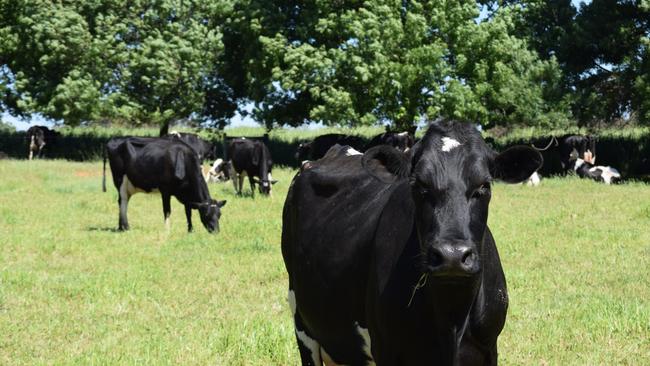Australian dairy processors under pressure: trans-Tasman milk price gap widens
Australian dairy processors find themselves under pressure, paying farmers $3/kg more for milk solids than their Kiwi counterparts as imports surge.

A trans-Tasman milk price gap of $3 a kilogram milk solids has put Australian processors on edge, as they struggle to maintain farmgate prices and battle a surge in New Zealand butter and cheese imports.
While Australian processors are paying local farmers $9.20/kgMS or more, their Kiwi counterparts woke up to the news last week that Fonterra New Zealand had cut their farmgate price to $6.25/kgMS ($NZ6.75).
United Dairyfarmers of Victoria president Mark Billing warned “things are lining up very similar to 2015-16”, when the trans-Tasman price gap also widened, eventually forcing Australian processors to not only cut prices but claw back money already paid to farmers.
But this time around Mr Billing said farmers had the protection of the mandatory dairy code, which prohibits clawbacks and only allows step downs under exceptional circumstances.
But processors have responded by relaunching their campaign against the code in response to the downturn.
Australian Dairy Products Federation executive director Janine Waller attacked the mandatory dairy code, saying it was “simply not working as it was intended to and needs to be reviewed as a matter of urgency”.
“Its one-sided negotiation framework means, for dairy manufacturers, it is now entirely detached from the commercial realities of a volatile global market and is promoting major pricing challenges,” she said.
But UDV vice-president Bernie Free said processors had “walked into the milk market in June knowing they had to pay above the export price, if they wanted a share of the shrinking Australian milk pool”.
“So surely they had a risk abatement strategy in place at the start,” Mr Free said. “It’s the same as when we got out and hedge our grain, if you don’t and the price drops, you pay the extra.”
Mr Billing said processors had “some wriggle room” when it came to within season step downs.
But Clause 28 of the explanatory notes to Competition and Consumer mandatory dairy code regulations 2019 state “it is not intended that a prospective step down would be a common event, rather that it would apply to rare occurrences such as trade shocks”.
Processors would also have to give the Australian Competition and Consumer Commission and farmers 30 days notice of their intention to step down the 2023-24 milk price, with farmers able to terminate their agreements within 21 calendar days.




